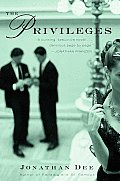
As much as I enjoyed
the road trip to Gettysburg on Tuesday night, the timing still caused me some sadness because it forced me to skip what has become a meaningful ritual: watching the final season of
Lost with my daughter. She is 13 years old, and the eighth grade of which she is a part is, as she would say, "officially obsessed" with the show. She owns, and wears to death, a t-shirt bearing the legend "4 8 15 16 23 42," which... well, in the words of the great Louis Armstrong:
Man, if you gotta ask, you'll never know.The show itself reminds me mostly of the old David Lynch series Twin Peaks, in that it's a conspicuous victim of its own initial success — whole seasons of it were basically just advertising-farms. But here's what I love about Tuesday nights: watching my daughter engage with the show not just in the purely reactive, naïve way younger kids relate to stories (E.M. Forster: "Qua story, it can have only one merit: that of making the audience want to know what happens next"), but parsing it for its big and small concordances, for what the artists have put there for her to find. When she recognizes that the numbers on the cave ceiling correspond to the number sequence on that t-shirt of hers — when she recognizes that the story itself is not just a succession of confrontations and chase scenes, but that there is an intelligence hovering over it and spanning the whole of it, and that the intelligence itself is the exciting part — well, that is where a lifetime of genuine engagement with art begins, and sitting there and sharing her pleasure in this discovery is one of the highlights of my week.
I was just a little younger than she is the first time something similar happened to me. Bored in school, I picked up a discarded textbook from one of the higher grades and read a short story called "So Much Unfairness of Things" by C. D. B. Bryan. It was a story about a kid who is so terrified of failing his Latin exam and disappointing his father that he cheats; his roommate and best friend sees him and, in accordance with the school's honor code, turns him in, whereupon he is expelled. I am sure I read that story 30 times, because it was the first piece of fiction I'd ever read where it wasn't immediately clear whom you were supposed to feel sorry for. I kept thinking I was missing something. When it dawned on me that the confusion I was feeling was exactly what the author wanted me to be feeling, the whole notion of narrative art opened up to me, permanently. C. D. B. Bryan died just this past year. He certainly made me a reader, and probably a writer, too.